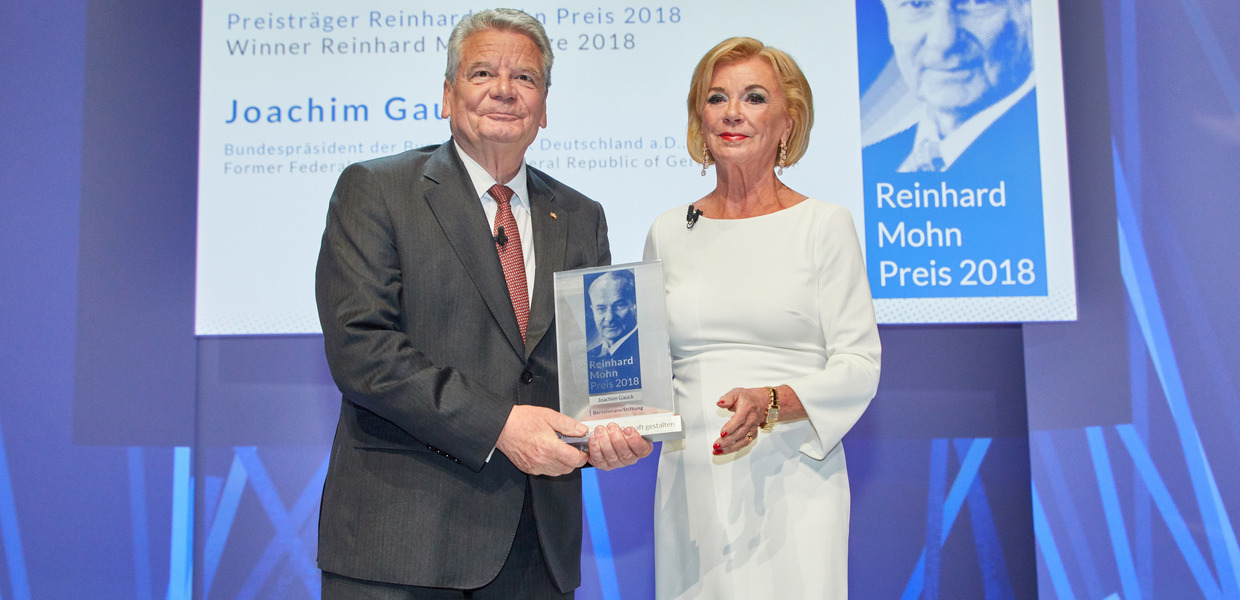The award ceremony held on June 7, 2018
In awarding the prize to Joachim Gauck, the Bertelsmann Stiftung honored his tireless commitment to a society which, thanks to its deeply anchored values, embraces diversity. As a child of the former German Democratic Republic (GDR) who consistently exercised criticism of the East German regime, advocating for an open, tolerant society has always been an essential aspect of Joachim Gauck’s personal ethics. He has successfully underscored what makes Germany an open, learning-oriented society while, at the same time, emphasizing the need for all members of society – whether long-time citizens or recent arrivals – to take part, democratically, in shaping the contours of this society. He has also identified the challenges and problems associated with such processes, thereby giving a voice to those who struggle with the changes in Germany underway as a result of immigration.
